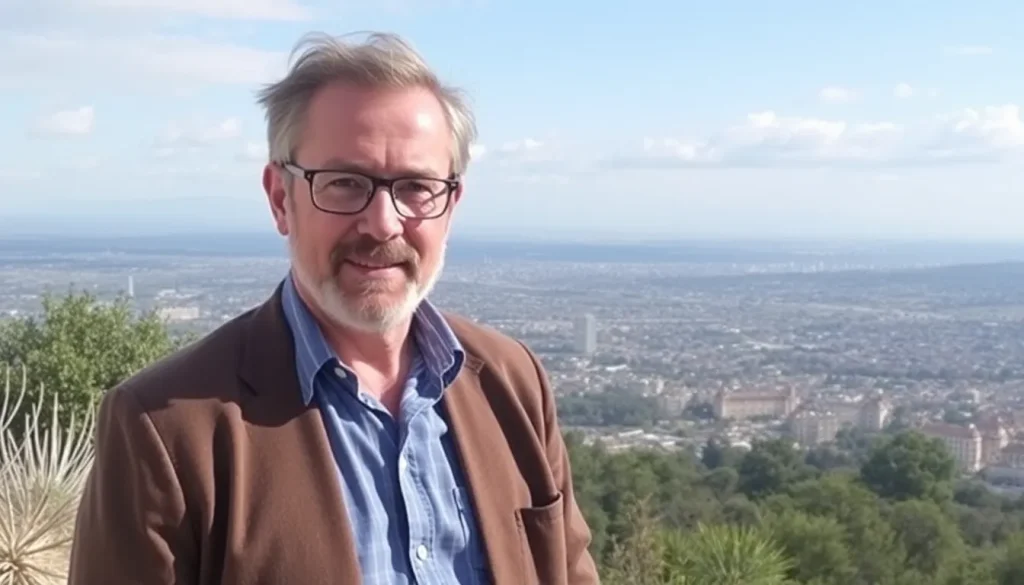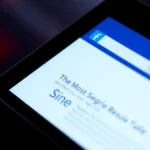Interview with Miquel Pellicer, Journalist and Anthropologist

INTERVIEW with Miquel Pellicer Alapont, journalist and anthropologist. Author of ‘Communication in the Trump Era’ (UOC, 2017). Currently, he serves as the Director of Strategy and Communication for the Lavinia Group.
- Miquel, how has the role of the media changed in recent years?
- We are witnessing a transformative period where the media has faced a triple crisis: a crisis in its business model, a crisis of legitimacy, and a crisis of credibility. These challenges have significantly impacted the independence of media outlets. However, while it has been a tough time for media organizations, it has not been for journalism itself. Journalists have risen to the occasion, creating innovative projects that enhance independence and credibility while adhering to best practices.
In recent years, we have seen the emergence of projects leveraging big data, fact-checking, and audiovisual media, alongside the increasing prevalence of live broadcasting. Events like Brexit and the election of Donald Trump have tested the resilience of the media in the wake of these crises, leading us into a period of transformation as we explore new horizons. It’s important to note that we will never return to the journalism of previous decades. We cannot idealize the journalism of the 20th century nor dismiss the journalism we are developing in the 21st century.
- Why do we increasingly distrust the media? Is it justified?
- Without self-flagellation, it’s crucial to acknowledge that journalism has committed certain ‘sins’ that have undermined its credibility and questioned its relevance in contemporary society. Some of these sins include:
- Excessive ties to the political system
- Lack of understanding of social changes
- Poor attention to the public service role
- Short-termism in reporting
- Excessive sensationalism
- Poor verification due to rapid production schedules
As citizens, our perception of the media is colored by these factors, which hinder our ability to fully trust the work being done. This catastrophic view overshadows the excellent work done by thousands of journalists, and it is unjust for the righteous to pay for the faults of the few. We must reverse this trend by fostering projects and media philosophies that emphasize quality journalism, public service, and professional ethics over the rapid information cycle and clickbait culture. We need to develop a slower-paced form of journalism that prioritizes thoroughness.
The emergence of phenomena like Donald Trump has tested the resilience of the media.
- What role do social media play in this crisis?
Social media is a fundamental tool in today’s communication ecosystem. Blaming social media for the crisis in journalism is akin to blaming hammers for the actions of those who misuse them. We must look beyond the surface to see the bigger picture. Currently, media outlets are often overly focused on content distribution methods that prioritize clickbait, superficial consumption, and poor practices.
It's essential to explore new content distribution models and rethink the business models of media companies, which are often geared towards a binge-consumption approach that values quantity over quality. Moreover, social networks should not be seen as central players but rather as products of corporations concentrated in Silicon Valley, which are reshaping journalism, communication, and consumer habits at large. This debate is broad and warrants consideration of the immense power these companies hold. Donald Trump quickly recognized this dynamic, evident when he convened major tech companies in December 2016 and again in June 2017 for the American Technology Council at the White House.
- What responsibility do the media themselves have?
There is a certain shortsightedness among media outlets regarding the changes taking place. For instance, they have allowed the Google-Facebook duopoly to dictate rules in digital advertising without fully realizing it. They lament the content distribution systems imposed by these tech giants while exhibiting acute short-term thinking. The world is evolving rapidly, yet media organizations fail to recognize that their business models and user relationships must adapt. Their romanticized view of the press as the ‘fourth estate’ is becoming outdated.
Instead, media must editorialize less and actively defend their role as defenders of ideas and democracy. In the face of phenomena like Donald Trump’s rise, they must do more than act as mere mouthpieces for supremacist or xenophobic ideas.
- Fake news, the word of the year according to Time… how can we combat it?
- While ‘fake news’ is a relatively new term, its roots stretch back many decades. It’s not a new phenomenon; rather, it has become a global term. For example, the sinking of the USS Maine in Cuba served as a false news story used by the American press to incite war against Spain. Similarly, the claims of weapons of mass destruction in Iraq were propagated by Western governments to justify military intervention. What has changed is the speed at which unverified and false content spreads, leading to prolonged mobilization around these falsehoods. An increasing number of people are willing to believe and disseminate misinformation via their social networks or messaging apps.
The media has a significant responsibility in this arena. It’s not enough to raise a flag in protest; they must work daily to avoid replicating a political communication style based solely on declarations. For instance, when Trump claims that Mexicans are responsible for rising crime in the U.S., it’s crucial not to publish such statements uncritically. Instead, the media should verify the information and provide additional context regarding the president's assertions. Trump often repeats falsehoods that ultimately become accepted as truth. A recent analysis by the Washington Post found that during a thirty-minute interview with the New York Times, Trump made 24 false claims.
- Do you believe these falsehoods elevated Trump to power?
- Trump’s victory is rooted in various factors, some of which relate to communication while others are tied to socio-economic conditions that he skillfully exploited. In my book, ‘Communication in the Trump Era,’ I analyze the elements that comprise what I call the ‘Trump Communication Machine.’
Trump has constructed a propaganda apparatus that blends a clear and effective strategy on social media, support from political marketing elements, and cutting-edge artificial intelligence provided by firms like Cambridge Analytica. His messaging is characterized by clear, concise, and repetitive communications not only through mainstream media but also through far-right pseudo-media like Breitbart News and Infowars. The innovative communication legacy left by Barack Obama unfortunately did not carry over to Hillary Clinton; instead, it became Trump's advantage. Moreover, Trump has a long history of using media to amplify his projects while simultaneously expressing disdain for them. He does not require significant advertising investments to reach the American voters he needs.
There is a certain shortsightedness among media outlets regarding the changes taking place.
- Is it realistic to consider Russian interference?
- Weekly revelations continue to surface regarding high-level influence, but this investigation will take time, and Trump will likely use various tactics to obstruct justice. Nevertheless, we must consider whether this influence was decisive. In my opinion, it was not. Hillary Clinton lost the election due to her own shortcomings, including a poor campaign strategy and missteps in communication.
- What does Trump’s victory indicate from a journalistic perspective?
- It suggests that journalists must engage more with the public, conduct deeper investigations, and be more radical in their pursuit of truth, moving beyond clichés and common places. The situations surrounding Trump, Brexit, the French elections, and the Catalan process expose a common tendency to label social phenomena we do not understand as populism.
In the U.S., when Trump announced his candidacy in June 2015, the media initially celebrated, mistakenly believing a clownish figure would have an easy path to defeat Clinton. When discussing Trump, the media often simplifies his mentality, reducing him to a simplistic, childish, and despotic character. However, he is much more complex than that, and media reductionism only obscures reality.
For American media, having someone like Trump in the elections boosts viewership, benefiting newspapers, radio, and television alike. Trump's press secretary’s briefings garnered millions of viewers, illustrating that there is always something newsworthy when it comes to the new White House. However, I question whether this new business model for media is sustainable in the long run.
Trump is aware that he serves as a lucrative draw for the media, claiming he will run again in 2020 because he knows a president like him is advantageous for selling newspapers.
- Why is Trump’s understanding of communication so unique compared to previous leaders?
- His approach is unconventional for a U.S. leader. While Barack Obama also embraced a non-traditional method and fostered a new form of diplomacy 2.0 that emphasized social media, Trump presents himself more as Donald Trump than as the President of the United States (POTUS). His relationship with the press is fraught with tension, reminiscent of Richard Nixon's, but whereas Nixon was distrustful of the media, Trump is more manipulative. He uses media as instruments to further his agenda, often without the media realizing they are being utilized in a despotic and combative manner.
Additionally, his communication strategy is influenced by close advisors like Dan Scavino and Hope Hicks, as well as figures like Stephen Bannon, Kellyanne Conway, and Sean Spicer, who have played varying roles in shaping a presidency that seeks to not only lead but also control its own communication narrative.
- How would you assess Trump’s use of Twitter?
- Trump, a 70-year-old New Yorker, uses Twitter with the fluency of a millennial, which I find noteworthy. He has a keen understanding of modern communication dynamics. Despite what many perceive as ignorance or even mental instability, he possesses a sharp intelligence. The challenge is that his style, which often defies political correctness, disrupts our conventional notions of how a leader of the world’s foremost country should behave.
- And what about the role Twitter plays in shaping his image?
What would Twitter’s stock be worth without figures like Trump? It might be on the brink of collapse. Instead, he provides unprecedented attention and ushers in what I refer to as diplomacy 2.0.
** Photograph: Quim Perelló




Leave a Reply